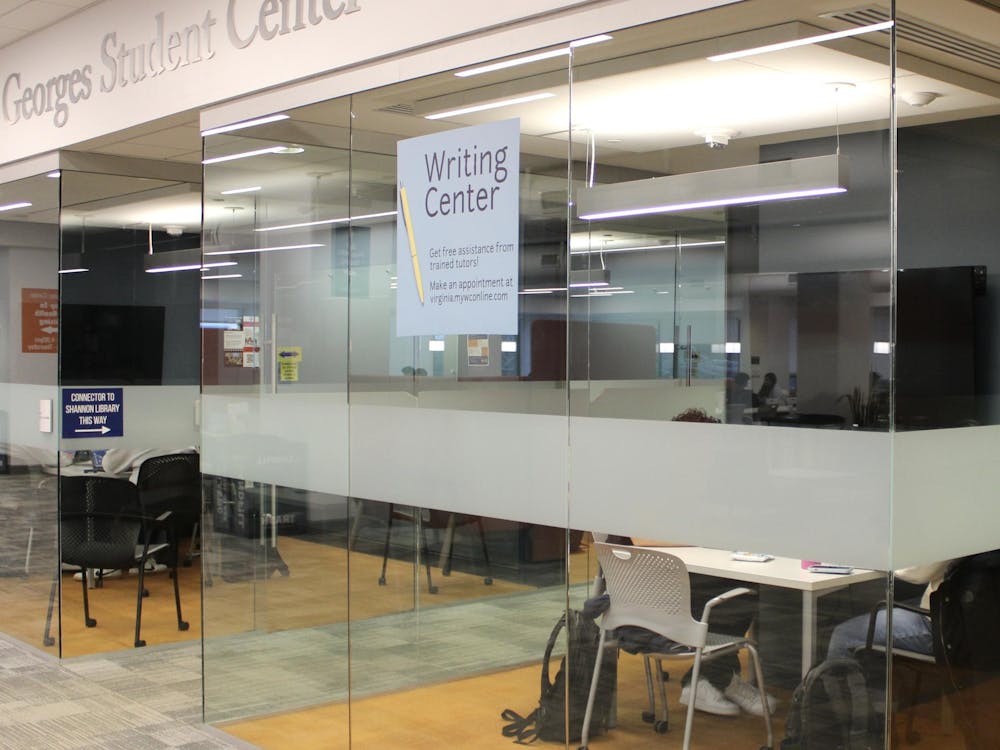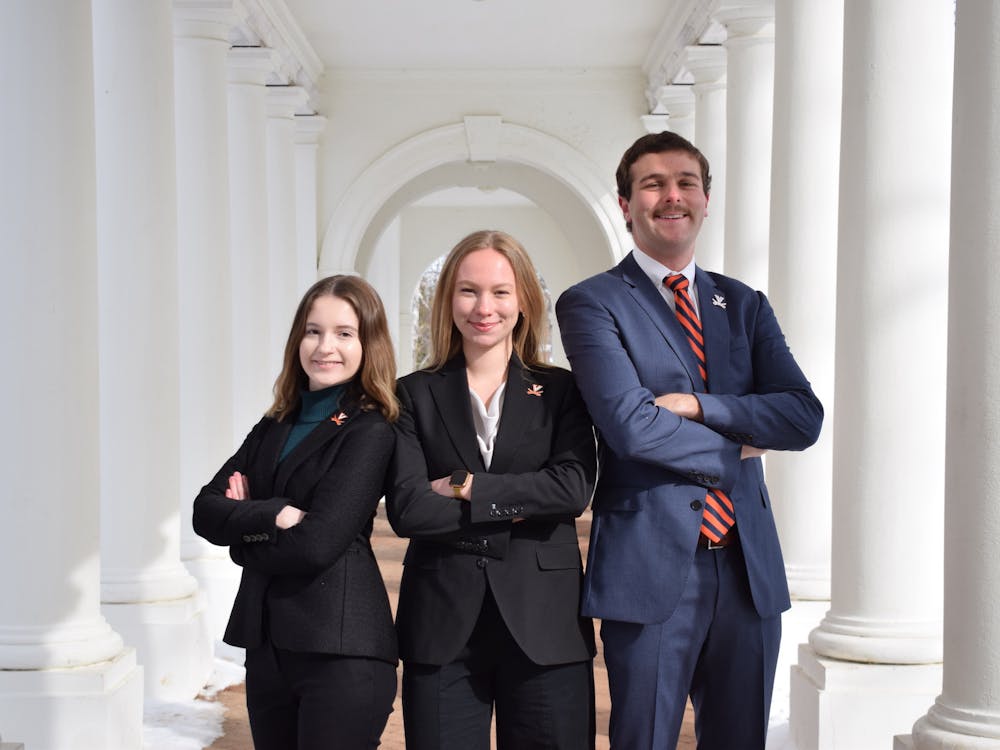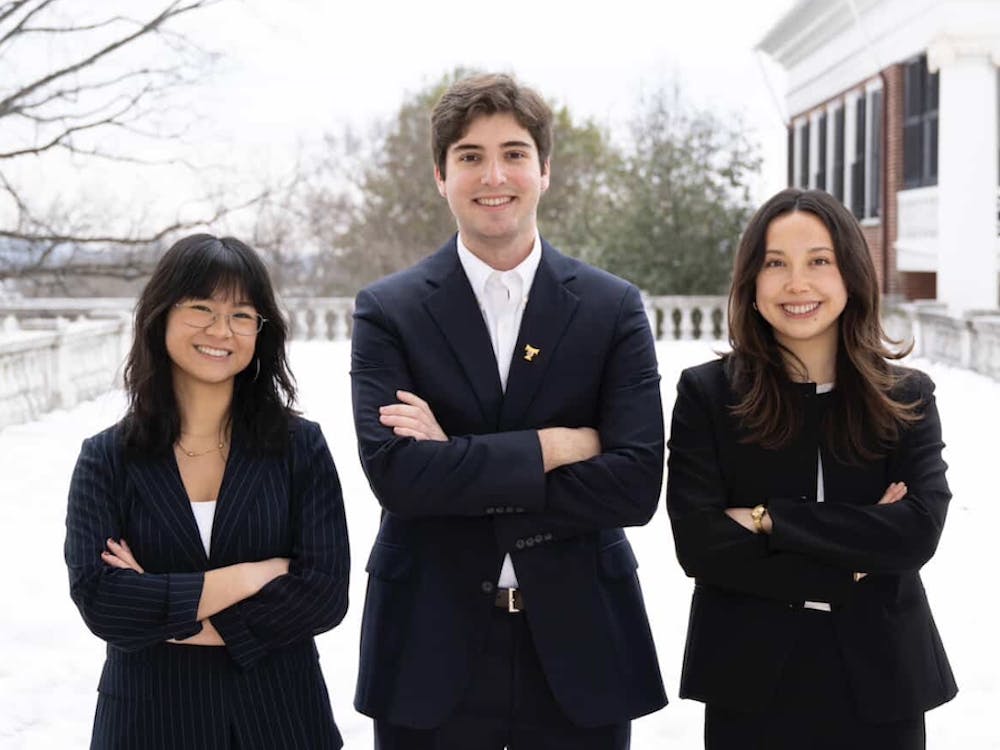Government and higher education leaders from across the commonwealth met via Cisco's TelePresence system yesterday to demonstrate and discuss the new technology, aimed at revolutionizing higher education.
Cisco TelePresence is a new form of high definition videoconferencing.
The presidents of George Mason University, James Madison University, the University and Virginia Tech participated in the meeting.
These four universities form the 4-VA consortium, which was organized to meet needs identified by Gov. Bob McDonnell's Higher Education Commission and his Jobs Commission, including increasing enrollment in Virginia public universities by 100,000 students during the next 15 years. The consortium will "significantly expand access for all Virginians to programs preparing them for rewarding careers," University spokesperson Marian Anderfuren said in an email.
James Hilton, chief information officer at the University, said the TelePresence system is currently being expanded at the participating institutions, including here at the University.
A bigger and more advanced version of the teleconferencing system which already exists in Clark Hall will be installed in Clemons Library in about two months.
Mike McPherson, associate vice president and deputy chief information officer at the University, said the system is similar to videoconferencing, except it includes the latest technology to establish video and audio quality, and offers an enhanced level of control and interaction.
"It's a whole lot of stuff that goes into creating this illusion that you're actually sitting across the table from somebody," McPherson said. "Technology sort of disappears."
James Madison President Linwood Rose described the technology as "the stuff of James Bond and Jason Bourne movies of years ago, and right now it's available to all of us."
One benefit of the system is that it allows universities to cooperate with each other and share each other's resources. University President Teresa A. Sullivan said the system will allow students to take classes their own universities do not offer.
4-VA will offer two courses through the TelePresence system next semester, with George Mason instructors offering Chinese business language and advanced Chinese language classes to students at James Madison and Virginia Tech.
Sullivan and Chambers agreed the system will be beneficial to research at the participating universities.
"If a researcher at one of our [4-VA] institutions is having difficulty or has reached a problem, then researchers at one of the other universities can come in and help," Sullivan said.
The system will also benefit students.
"A lot of businesses want to interview prospective employees" through high definition videoconferencing, Sullivan explained. "It's much cheaper than having to fly them where they want to be. It opens up a lot of opportunities that students haven't had before."
Chambers said this new technology will also give students technological experience which is becoming increasingly valued by employers.
McDonnell said this program helps keep Virginia competitive both nationally and globally.
Virginia "already [has] perhaps the best higher education system in the country, but that doesn't mean we can't get better," he said.






